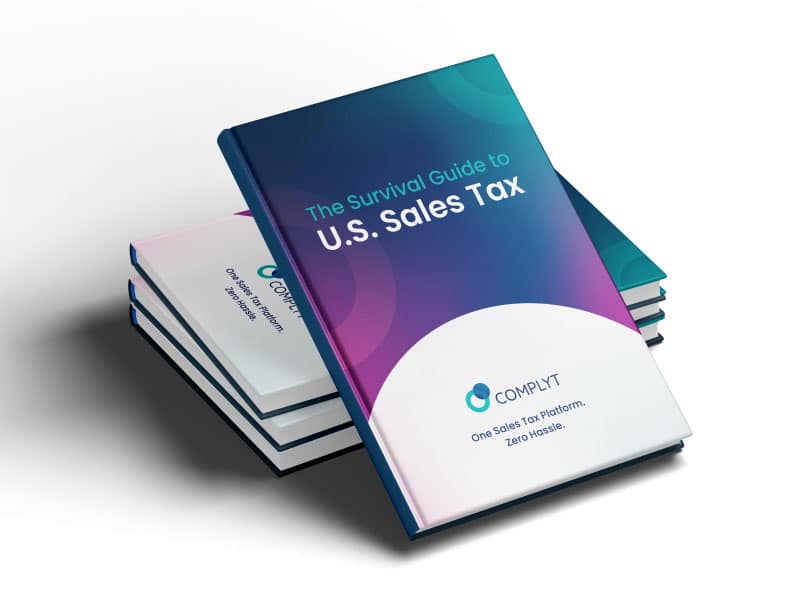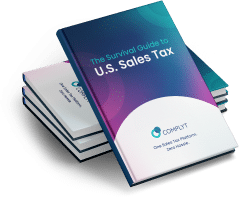What is the sales tax rate in Indiana?
Indiana has a statewide sales tax rate of 7.0%, and there are no additional local sales tax rates. This means that the sales tax rate will be the same across the entire state, regardless of where your business is located or where you make sales.
Indiana’s 7.0% sales tax rate applies to most retail sales of tangible personal property. However, there are some exemptions to this general rule. For example, some items, like prescription drugs and certain medical devices, are exempt from sales tax. Additionally, some services, such as lodging and rental cars, have different tax rates.
When should your business collect Sales Tax in Indiana?
In Indiana, you are required to collect sales tax if you have a physical presence or economic nexus in the state. This means that if you have a storefront, warehouse, office, or even an employee working remotely in Indiana, you are required to collect sales tax from customers located in the state. Additionally, if your business has an economic nexus, meaning you meet certain sales thresholds, you must also collect sales tax.
Indiana Physical Sales Tax Nexus
If your business has a physical presence in Indiana, you will likely have a sales tax nexus, and you will be required to collect and remit sales tax to the state.
Sales Tax Physical Nexus Checklist for Indiana
- Do you have a storefront, office, warehouse, or other physical location in Indiana?
- Do you have an employee, sales representative, contractor, or agent working in Indiana?
- Do you have goods stored in a warehouse or fulfillment center in Indiana?
- Do you attend trade shows, conventions, or other events in Indiana?
- Do you provide installation, maintenance, or repair services in Indiana?
If you answered “yes” to any of these questions, you likely have a physical nexus in Indiana and are required to collect and remit sales tax.
Indiana Economic Nexus Threshold: Revenue, Thresholds, and Transactions
Indiana has an economic nexus threshold for businesses that don’t have a physical presence in the state but meet specific sales criteria. If your business has gross revenue of $100,000 or more or at least 200 separate transactions in a calendar year in Indiana, you will have an economic nexus and will be required to collect and remit sales tax.
Which Services Are Taxable in Indiana?
In Indiana, most tangible personal property is subject to sales tax. However, services are generally not subject to sales tax, with some exceptions.
Here is a list of some taxable services in Indiana:
- Lodging accommodations
- Rental of tangible personal property
- Delivery and installation services
- Repair and maintenance services
- Admission to amusement parks, athletic events, and entertainment venues
- Membership fees for clubs and organizations
- Please note that there are exemptions and specific rules for certain services.
You can see why it’s essential to know your stuff when it comes to navigating compliance as a service provider.
Indiana Sales Tax on Products: How to Calculate What Your Business Should be Charging
The standard state sales tax rate in Indiana is 7%, and it applies to most retail sales of tangible personal property and certain services. However, there are exceptions and exemptions to this rule, which might affect how you calculate and charge sales tax.
Here are some tips to help you calculate and charge the correct sales tax amount:
Determine Your Nexus: Before you start collecting sales tax, determine if you have a physical or economic nexus in Indiana. Refer to the previously mentioned criteria to check if you meet the requirements.
Identify Taxable Items: Understand which of your products or services are taxable in Indiana. Generally, tangible personal property is taxable, while most services are not.
Apply the Sales Tax Rate: Once you’ve identified taxable items, apply the 7% sales tax rate to the total sales amount.
Consider Exemptions: Some sales are exempt from sales tax, such as sales to nonprofit organizations, certain agricultural products, or sales for resale. Verify if your customer qualifies for an exemption and apply it when necessary.
How Much is Indiana Clothing Tax?
In Indiana, clothing is generally considered tangible personal property and is subject to the standard 7% sales tax rate.
However, there are some exceptions, such as protective equipment and clothing used for a trade or business, which may qualify for an exemption. It’s essential to review the Indiana Department of Revenue’s guidelines and consult with a tax professional to ensure compliance.
Indiana Online Sales Tax: Are SaaS and Digital Services Taxable?
Digital products are generally subject to Indiana online sales tax, but there are some exemptions. Computer software is an essential example, where taxability is based on whether the seller grants the end user a right of permanent use and whether the software is delivered in physical form.
SaaS Sales Tax Indiana: How to tax clients in Indiana
Indiana SaaS sales tax isn’t something businesses need to worry about yet. In 2018, the state declared the sale of SaaS product exempt from sales tax. But with the rise of SaaS popularity, that exemption may not stay in place forever.
How can a business get a sales tax permit in Indiana?
To collect sales tax in Indiana, your business must obtain a Sales Tax Permit (also known as a Registered Retail Merchant’s Certificate) from the Indiana Department of Revenue.
Here are the steps to follow:
Gather required information: Before applying, gather the necessary information, such as your business name, address, federal Employer Identification Number (EIN), and details about your products or services.
Apply online: Go to the Indiana Department of Revenue’s INBiz portal and complete the online application. There is no fee to apply for a sales tax permit.
Wait for approval: After submitting your application, wait for the Department of Revenue to review and approve it. Once approved, you’ll receive your Registered Retail Merchant’s Certificate and can start charging and collecting sales tax.
Collecting Sales Tax in Indiana as a Business
As a business owner, it is your responsibility to collect the appropriate sales tax from your customers and remit it to the Indiana Department of Revenue. Here are some tips to help you:
Apply the Correct Sales Tax Rate: Ensure you are charging the correct 7% sales tax rate on taxable products and services.
Maintain Accurate Records: Keep detailed records of all sales transactions, including the sales tax collected. You will need this information when filing your sales tax return.
Consider Sales Tax Software: Use sales tax software to automate sales tax calculation, collection, and remittance.
Consult a Tax Professional: Consult a tax professional for any questions or uncertainties regarding sales tax collection in Indiana.
Indiana Tax Return Due Dates Explained
The Indiana Department of Revenue requires businesses to file sales tax returns and remit collected sales tax regularly. The due date for filing your sales tax return depends on your filing frequency, which can be monthly, quarterly, or annually.
Typically, the due date is the 30th day of the month following the end of the reporting period. For example, if you file quarterly, your sales tax return for the first quarter (January-March) will be due on April 30th.
What is the required frequency for sales tax returns in Indiana?
The Indiana Department of Revenue assigns a filing frequency to each business based on its sales tax liability. The three filing frequencies are:
- Monthly: If your sales tax liability is over $1,000 per month, you must file monthly.
- Quarterly: If your sales tax liability is between $200 and $1,000 per month, you must file quarterly.
- Annually: If your sales tax liability is under $200 per month, you must file annually.

